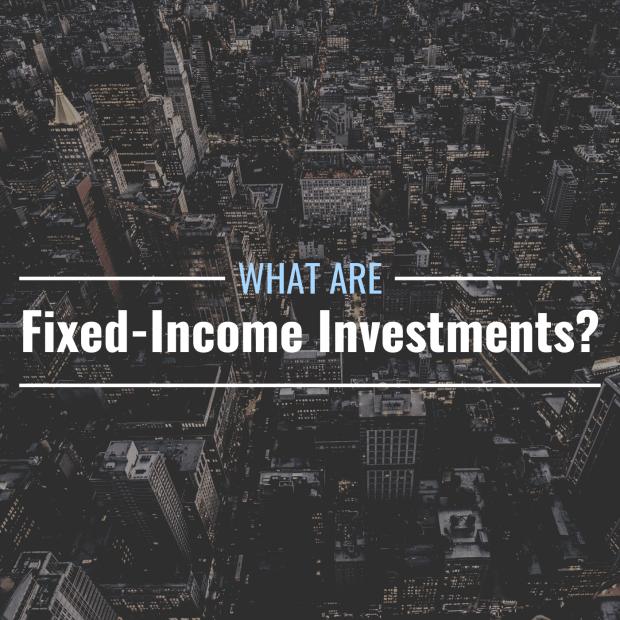
What Is a Fixed-Income Security?
A fixed-income investment is an asset or security that provides its owner with income payments at regular intervals, usually in the form of interest or dividends. Common examples include bonds, shares of preferred stock, and certificates of deposit.
Fixed-income securities are valued by investors for the income streams they provide rather than for their ability to appreciate in value.
What Is Fixed-Income Investing?
Fixed-income investing is pretty much what it sounds like—investing specifically in fixed-income securities like bonds and real estate investment trusts.
Fixed-income investors don’t seek massive returns from speculative investments like growth stocks. Instead, they purchase investments that are less likely to appreciate in value but are likely to at least maintain a stable value while also providing passive income payments over time.
The goal of fixed-income investing is to maintain wealth, generate income via interest and dividends, and avoid the losses that can come with investing in more volatile securities like regular stocks.
5 Examples of Fixed-Income Investments
There are many different types of securities that provide passive income payments to their holders. Below are a few examples of securities favored by fixed-income investors.
Interest-Paying Bonds
A bond is essentially a loan an investor makes to another entity in exchange for interest payments. Whether municipal, federal, or corporate, bonds pay interest regularly until they mature, at which time the principal investment is returned to the investor. Treasury bonds issued by the federal government are generally considered the safest, and corporate bonds rated BB or lower are considered the riskiest.
Certificates of Deposit
Certificates of deposit, or CDs, are special accounts offered by banks and other financial institutions that allow customers to make a deposit and leave it untouched for a specific amount of time—like 12 or 18 months—in exchange for interest payments. CDs usually offer higher rates of interest than traditional savings accounts, and interest rates vary significantly between banks.
Preferred Stock
Preferred stock, like common stock, represents partial ownership in a company, but unlike common stock, preference shares almost always come with a guaranteed dividend. Because much of their value comes from this “locked-in” dividend payment, preference shares don’t tend to go up and down in price as frequently or drastically as common shares. Since preferred stock is equity, it is riskier than bonds or CDs.
Real Estate Investment Trusts (REITs)
REITs are companies that buy real estate, finance real estate purchases, or do some mix of the two. They are required to distribute at least 90% of their income to shareholders as dividends, so they are particularly popular with fixed-income investors.
Dividend-Paying Stocks
Some companies have a track record of paying dividends to common stockholders—not just preferred shareholders—on a regular basis. Common stock is riskier than preferred stock, bonds, and CDs but also has more potential to increase in value.
What Are the Advantages of Fixed-Income Investments?
Fixed income investments are a great way for an investor to maintain their existing wealth while earning passively via interest payments and dividends. They are relatively safe compared to other types of investments, and they are less prone to volatility than stocks and commodities. Some fixed income securities, like bonds and CDs, tend to be financial safe havens during periods of recession.
What Are the Disadvantages of Fixed-Income Investments?
While fixed income securities are safe and offer stability, they don’t have nearly the upside potential of riskier securities like growth stocks and options. With lower risk come lower potential gains.
Additionally, some fixed-income securities like bonds are prone to interest rate risk. If an investor purchases a bond and then interest rates go up, that bond loses resale value. Inflation risk works similarly. If inflation outpaces a bond’s interest during its term, its relative return can be reduced. Thus, the longer a bond’s term, the more it stands to become devalued by inflation.
How to Invest in Fixed-Income Securities
Those interested in fixed-income investing can manually create a portfolio composed of bonds of various issuers and terms, shares of preferred stock and REITs, and other fixed-income securities, or they can invest in exchange-traded funds (ETFs) or mutual funds aimed at providing regular passive income payments. By choosing an ETF or mutual fund, an investor can gain exposure to a professionally curated portfolio of fixed-income vehicles with a single investment.







